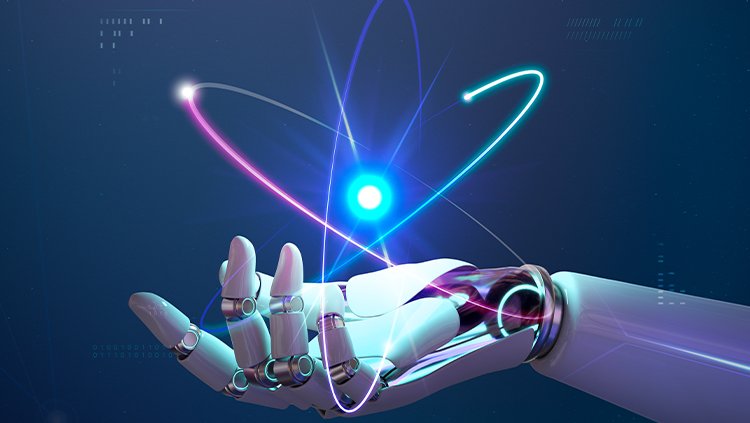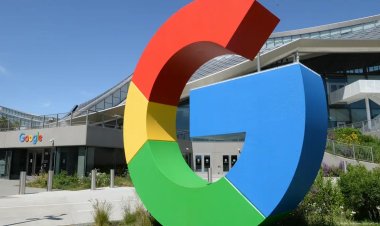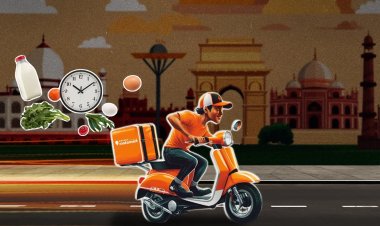Adding "Ai" to advertising
According to experts, AI can help marketers design personalised experiences for each customer based on their behaviour, preferences, and demographic data.

The new uncharted territories of the digital world are represented by platforms like Open AI's ChatGPT, Google's Bard, and Elon Musk's Twitter threads. All options appear to be open with billions being invested in creating AI capabilities.
Everyone is focusing their attention and resources on artificial intelligence and how it may improve their performance, from local to national governments, multinational corporate titans to small but tenacious start-ups, college applications to stock traders. And the advertising media sector, which has always been at the front of technical advancements, is far from being left behind.
Heeru Dingra, Chief Business Officer of Dentsu Creative India, believes that as AI technology continues to improve, its integration into the advertising and marketing industries will only intensify, providing major advantages to both companies and customers.
She thinks that Personalized Advertising, Predictive Advertising, Content Marketing, Conversational Marketing, and Enhanced Creativity are some of the important sectors that will be impacted.
The Cadbury Shahrukh Ad and Heinz AI Ketchup are two prominent instances of how AI can be used by advertisers to create customised experiences for each customer based on their behaviour, preferences, and demographic data.
On Target
Dingra predicts that this will increase dramatically as AI-powered customization has a profound effect on campaigns' efficacy and efficiency at scale, resulting in higher levels of engagement, higher conversion rates, enhanced brand loyalty, and better customer experiences.
"Historically, lower funnel performance optimization activities were handled by AI. With better targeting, personalization, and the capacity to optimise advertising campaigns in real-time, marketers and agencies are now attempting to integrate technology throughout more stages of the funnel process, according to Dingra. He also notes that doing so will enable businesses to quickly and effectively adjust their advertising strategies in order to reach the right consumers with the right message at the right time.
According to Sociowash co-founder Pranav Agarwal, consumers today heavily rely on the internet to make their purchasing decisions, giving advertisers significant influence over consumers' decisions. At the same time, AI will help marketers spend less time and money while improving the effectiveness of their customer-focused campaigns.
Its capacity to streamline queries and provide consumers with useful content and services means that it will unavoidably appear in all digital arenas. Additionally, chatbots will generate sincere, in-the-moment responses that address the user's issues, according to him.
TheSmallBigIdea's COO and co-founder, Manish Solanki, notes that AI enables the collecting and compilation of significant consumer data, allowing marketers to identify trends and send hyperlocal, pertinent tailored messaging.
"Using ChatGPT or similar modules for advertising campaigns will be a norm and you'll start seeing them very soon," says Angad Singh Manchanda, CEO and Co-founder, Chimp&z Inc. "All the old-school ways of delivering, calculating, and analysing a successful campaign will be needed to let go and those who adapt will see a lot more growth than those who are rigid and take time to deploy the technology on a day-to-day basis."
Imagination on Tap
In fact, according to Rohan Mehta, CEO of Kinnect, some of the strongest applications for artificial intelligence in the media tech stacks are in the areas of copywriting, conceptualization, video editing, and even as thought starters in specific fields. "This will undoubtedly have an effect on people, particularly when it comes to quick thinking. It may be a useful tool for increasing productivity. The firms that embrace AI will be the most prosperous, but it won't replace human innovation; rather, it will increase productivity, writes the author.
Dhingra also thinks AI has a lot of promise to boost creativity by offering fresh ways to explore and communicate ideas as well as making it possible to test and optimise creative thoughts more successfully.
"However, due to simplifying of technical capabilities and a dearth of fresh artistic contribution, there is a possible risk of repetition and a reduction in creativity. As a result, there will be a need for human knowledge in fields like strategy, communications, and narrative, she warns, adding that the combination of AI and human expertise will encourage the industry to push the limits of creativity and promote ongoing innovation.
Agarwal is of the opinion that this will not replace people or eliminate employment, but rather will assist creative people become more efficient and give them more time to pursue other creative endeavours.
According to Solanki, AI strengthens creative tactics by enhancing concepts with data-driven insights, enabling us to maximise the effect of our initiatives. However, the creative process also incorporates a combination of human intuition and imagination in addition to efficient data analysis.
The brilliance of creative wizards comes into play when thinking of insights and nuances from real human experiences, according to Agarwal, who concludes, "AI is definitely going to play a massive role in the future, as ML is already doing today, in the background, intensively, making lives of us marketers easier, and we are looking forwar."












